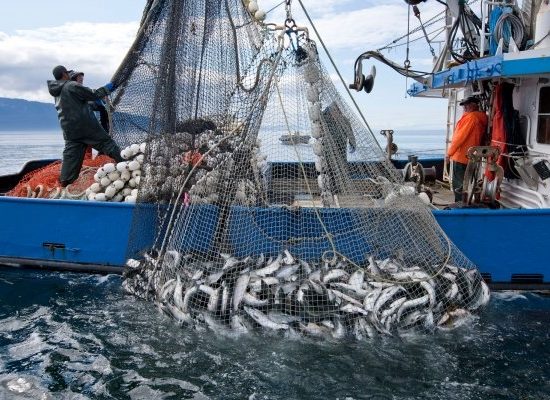
One of my continuing science projects has been to demonstrate how much our commercial fishermen are punching above their weight in the political wars, particularly as there are not all that many of them and a LOT of sportfish license holders and personal use (dipnet) permit holders.
I acquired license and permit lists for all commfish permits, all sportfish license holders, and all personal use permit holders for 2018. Input the data into a voter database and did a comparison between gross numbers broken down by legislative district. The numbers should be in the 90th percentile.
In gross numbers, just under 20% of all Alaska voters hold sportfish licenses. Just over 3% participate in either the Cook Inlet or Copper River dipnet fisheries. And finally, a mere 1.53% of Alaskans hold commercial fishing permits.
With these numbers, you would think any dispute between commercial fishermen and any other user group would be resolved decisively in favor of either or both other user groups. That rarely happens. Why? Because commercial fishermen are organized and quite aggressive in pushing their interests. The other user groups aren’t.
Perhaps it is time they were.
Should sport fishermen and to a lesser extent personal use (dipnet) fishermen organize to pursue their personal interests, the result would be huge. Can you say, “Little Big Horn?”
As a working example, let’s take a look as the legislature’s rejection of Karl Johnstone for the Board of Fish last session. There were 33 legislators who voted against his nomination. Opposition appeared to be two-pronged, with legislators who represented parts of the state with heavy commfish interests universally voting against his nomination. Democrats, particularly those here in Anchorage, followed ‘Poison’ Ivy Spohnholtz lead and tapped into their inner “Tall Man Bad’ courtesy of her last minute, fraudulent #MeToo charge against Johnstone and voted mostly as a block against his nomination. Throw in a few Republican outliers such as Cathy Giessel, Chuck Kopp and Click Bishop, and you end up with a 33-vote rejection of the nomination.
What sort of risk did these legislators embrace with these votes? Quite a lot based on the voter totals in their district. But it is only quite a lot if someone does something about it, perhaps during the upcoming primary season.
‘Poison’ Ivy Spohnholz (Dist 16) here in Anchorage has nearly 2,100 sportfish license holders in her district. They outnumber commercial fishermen in her district 90:1. Personal use (dipnet) people in her district outnumber commfish 22:1. Might be a good idea to remind them of her failure to support their interests this July when the Kenai commfish office approves the fifth commercial emergency opening in a row, removing second run reds from the Kenai River.
Her House compatriots Josephson, Drummond, Tarr, Fields and Claman have similar numbers in their districts.
On the Republican side, we have Chuck Kopp (Dist 24), a commercial fisherman who appears to be using his position as a legislator to prop up his commercial fishing business. Sport fishermen in Kopp’s district outnumber commfish permit holders a mere 66:1. Dipnet people outnumber commfish 16:1.
We have Senate President Cathy Giessel (Dist N), who had the opportunity to send the nomination back to committee but chose not to do so. In her district, sportfish outnumbers commfish a mere 42:1; dipnet 10:1. The word among sportfish advocates has been that she has long been a supporter of Cook Inlet commercial fishermen, often at the expense of every other user group. If someone organizes the other user groups during her upcoming primary, things may get quite interesting.
There was a time when democrats knew how to count votes. Here in Anchorage, at least, that time is long past as we have three state senators and six house members who blew off their constituents who are sport fishermen in favor of some combination of specious #MeToo / Tall Man Bad charges.
Perhaps it is time to reeducate them on the error of their ways.
Final consideration via a timely reminder from Craig Medred is sheer economic impact of the various user groups. If the legislature looks at allocation of salmon in this state as a simple jobs program for the participants, it is long past time to consider the Board of Fish to prioritize the positive economic impact of sport and personal use fishing.
My next column on this will be an analysis of votes for the incumbents that opposed Johnstone and see who is at greatest risk based on their votes against his confirmation.
Alex Gimarc lives in Anchorage since retiring from the military in 1997. His interests include science and technology, environment, energy, economics, military affairs, fishing and disabilities policies. His weekly column “Interesting Items” is a summary of news stories with substantive Alaska-themed topics. He was a small business owner and Information Technology professional.









